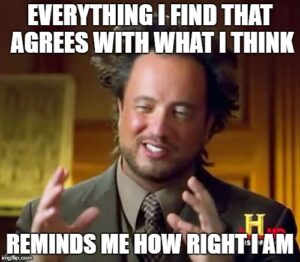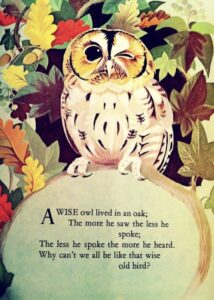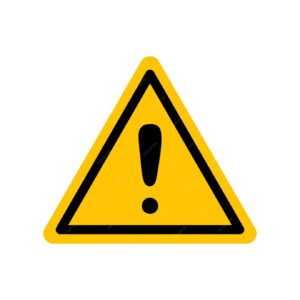I have to be honest…. I don’t watch, listen or look for the news anywhere. Ever. I cut news out of my life more than a handful of years ago because I found that everything that was being reported was full of negativity and quite honestly, it was hurting my heart. When people are discussing current events, I often have not heard about them (ahem, Kate Middleton discussion on Tuesday night? I had no idea what was going on!) and 99% of the time, it doesn’t bother me.
No news is good news, right?!
This week’s class was actually incredibly eye opening, but also stirred up a sense of fear inside me. I feel like I’m pretty good at identifying, say, a fake social media profile, but this new AI technology where “people” aren’t actually the “real people”? That freaks me out. I think it’s completely unfair for people to take advantage of these new technologies to try and scam people just because it’s so easy for them to do so and is yet another reason why I stay off the internet as much as possible. Or, is this just solidifying a belief that I hold onto and it doesn’t actually make it correct?? According to npr, it is much easier to call a fact a fact when it is something that you like or agree with. This makes sense to me, but I recognize that it doesn’t aid in the process of sharing factual information if our personal bias keeps getting in the way!

Image source here: https://imgflip.com/i/1qdll1
With the digital world and technology continuing to evolve at a break-neck pace, it is important to be teaching students about digital literacy, but how can that even be done effectively? We must start the discussions at a younger age now as so many youngsters are regularly accessing the internet without a doubt being exposed to clickbait in the process. In the Canadian School Libraries Journal article from our reading list this week, it references the National Enquirer papers that were so boldly displayed at the grocery store alongside other tabloids. When I was a kid, this was our clickbait – bold fonts and headlines to grab your attention – except I would just out that back on the shelf and walk away.

The difference in the articles today is that the entertainment factor has disappeared and has been replaced with an ominous presence. All of the technologies seemingly used to dupe anyone and everyone continue to make it harder and harder to decipher what is real or true and makes me question what I can actually believe.
The Backfire Effect, as creatively outlined in The Oatmeal’s comical demonstration, deserves some attention. I have personally suffered from the backfire effect many times in my life. I just didn’t realize there was a name for what I was feeling! This creative article confirms that it’s normal to feel upset when someone challenges beliefs that you’ve held for most of your life. Who wouldn’t? But, it also highlights the importance of listening to a new point of view and allowing time for your emotions and your brain to calm down if your longstanding beliefs have been challenged. I don’t disagree with that suggestion!

I cannot share the source of this particular photo or quote because I have no idea where I found it, but I’ve had it saved in my camera roll since… 2018!
The NCTE framework is something that can be reviewed and considered in any subject requiring access to tech and the internet for research purposes. The foundation of the framework and the need to exhibit caution in evaluating and analyzing sources remains important across all subject areas. Teaching students how to determine whether a source is relevant and acknowledging the perspective that the information is being presented from is also very important. The research and identification process becomes increasingly difficult with every fake news article posted on the internet. Providing grade and age appropriate examples of how to identify false information, especially with our younger students, will hopefully set them on the right track to be able to discern between “real” and “fake” although I question my abilities to do the same on an almost daily basis.
For everyone out there accessing the vast, scary place called the internet, my advice is to err on the side of caution!

Hi Chantelle,
I also, try to stay away from the news. Only news I look into is the sports page, because it is impossible to lie about wins and losses. Last week in class I found it super helpful when were given all of those tools on fact checking articles and seeing if they are valid or not. Maybe those resources will be the reason for me getting into the news again. But also, I agree, the news is too negative for me.
-Carson Sombach